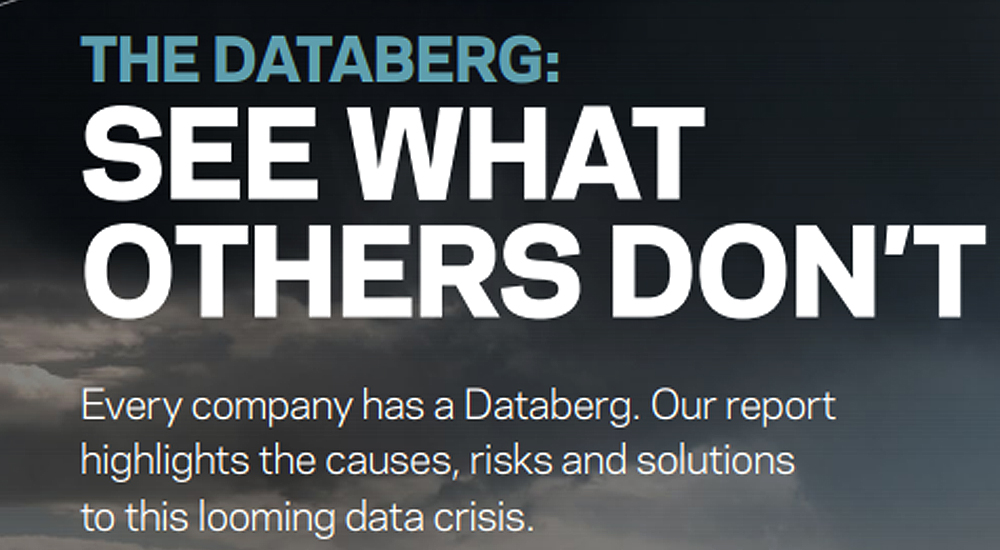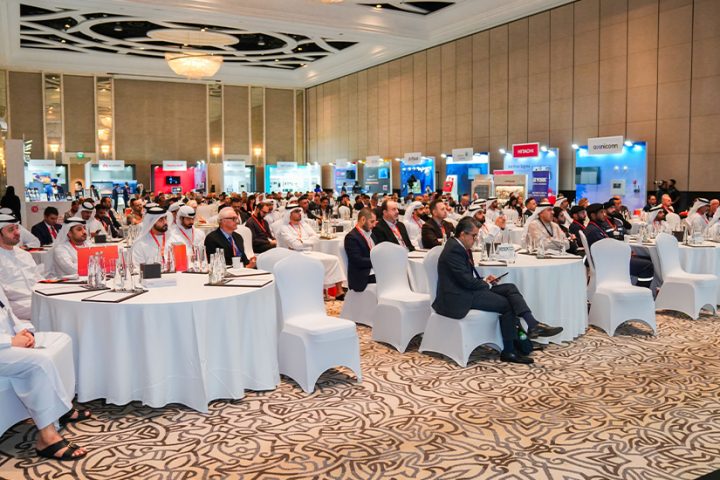Veritas Technologies, a global vendor in enterprise data protection and software-defined storage, unveiled the third edition of its Middle East Databerg Report. The key findings highlight that UAE businesses surveyed are failing to manage their dark, unclassified, and Redundant, Obsolete or Trivial, ROT data, which is slowing cloud adoption.

Sitting at 88% of total company data, dark and ROT data has significantly contributed to respondents failing to reach their own targets for cloud migration. While last year’s prediction of cloud storage uptake was 55%, the actual uptake this year was just 45%.
The report, which surveyed 100 IT leaders across all key business sectors in the UAE, focuses on identifying the pervasiveness of databergs’ – reflecting the surveyed UAE organisations’ data hoarding culture. The report indicates that the volume of data which is either dark or ROT has remained consistently high over the past three years, highlighting that the businesses questioned in the report have not done enough to significantly improve the visibility or management of their rapidly growing data.
Despite the vast financial and reputational risks associated with storing dark and ROT data, the report underscores a drop in confidence in cloud storage, with just over half 53% of respondents believing that cloud migration can lead to cost savings.

The main issues that are currently slowing down adoption of cloud data storage in the UAE amongst the organisations surveyed are:
- Poor data hygiene due to slow data deletion, rates of deletion have stalled overall between 2018 and 2019 with only 15% of organisations deleting data weekly.
- Despite being the biggest culprits of hoarding ROT data at 47%, the public sector was found to have a strong discipline of monthly deletion, making them one of the most effective sectors
- 49% of UAE organisations use either tape or primary disk devices for storage
- Approximately two thirds 63% of organisations waste money on orphaned data, while only 33% of UAE organisations have a regular process to reclaim and repurpose orphaned capacity.
With these issues, many of the UAE organisations surveyed are running high levels of risk around ransomware, with approximately a quarter of businesses saying it would take them a week to recover from a ransomware attack. Just 55% of businesses are prepared for ransomware attacks and have backup and recovery plans in place, claiming to be able to resolve an attack in 24 hours or less.
According to the report, retail and consumer organisations are most prepared for ransomware, citing the ability to recover data within just two hours, while public sector and utilities companies said recovering data could take up to a week. This could pose serious risks to vital governmental services and utilities in the UAE, hampering the daily lives of UAE residents.
The study also reveals that over half of the UAE firms surveyed prefer a private cloud strategy. In fact, the popularity of the private cloud first, strategy has seen an increase in the last year at the expense of all other strategies, including hybrid cloud, public cloud and on-premises. Only 17% of respondents cited that they deploy all modern workloads on public cloud, while 27% maintain hybrid cloud combinations of on-premises, private and public.

Johnny Karam, Vice President of Emerging Markets at Veritas, said: “Data is central to the digital transformation in the UAE and yet, our study reveals that businesses are crying out for a better and simpler way to manage their data in order to reap the rewards of the cloud. Unfortunately, the UAE businesses surveyed fail to realise the true potential of the cloud because of poor data management, creating a vicious circle of rising IT costs and missed opportunities.”
“Embracing a hybrid cloud model will enable businesses to better manage their budgets while benefitting from improved backup and ransomware protection capabilities. In addition, prioritising the management and protection of valuable, mission-critical data, while illuminating dark and deleting ROT data, will help boost operational efficiencies and business transformation.”
“With the UAE committed to becoming the smartest city in the world by 2020, our research highlights the critical need to efficiently manage and protect data to help achieve this ambitious goal. In order to garner real value from their data, UAE businesses need a data management strategy that can help them abstract complexity from their IT environments and enhance visibility, in turn deriving tangible, actionable insights from their data. Anything less will not only curtail transformation efforts but could also have serious financial and reputational repercussions for businesses,” added Karam.
Veritas will be revealing the full findings of the Veritas 2019 Middle East Databerg Report at the Veritas stand: E20, Hall 7, during Gitex 2019.
What is the Databerg
A total of 100 IT leaders across multiple sectors and job roles in the UAE were interviewed to gain insights into how UAE organisations are handling the growing Databerg.
The concept of the Databerg is key to understanding the issue of modern data management. Much like the surface of an iceberg potentially hiding a lurking danger, the Databerg is a place where a business’ best and worst data hides. Above the surface, the top of the Databerg, is the clean data. This is business-critical tagged and classified data, which supports the smooth running of businesses today.
Immediately beneath the surface is Redundant, Obsolete and Trivial data. This is tagged, and so also classified, data but with minimal value to the organisation.
The remaining data is dark data; untagged and unknown. There is no real insight into the information dark data holds. As a result, there is no telling whether the data is ROT, which can be securely disposed of, or if it contains valuable, as-yet-unseen operational insights. This means dark data can be an asset, containing valuable information an organisation can act on. It can also be a risk, hiding threats and potential costs out of sight and out of control, leaving them to grow in the dark.

Key takeaways
- At 88% of company data, dark and ROT data has contributed to respondents failing to reach their own targets for cloud migration.
- Last year’s prediction of cloud storage uptake was 55%, the actual uptake this year was just 45%.
- Many UAE organisations are running high levels of risk around ransomware, with quarter of businesses saying it would take them a week to recover from ransomware attack.
- 55% businesses are prepared for ransomware attacks and have backup and recovery plans in place, claiming to be able to resolve an attack in 24 hours or less.
- Retail and consumer organisations are prepared for ransomware, citing ability to recover data within just two hours.
- Public sector and utilities said recovering data could take up to a week.



















